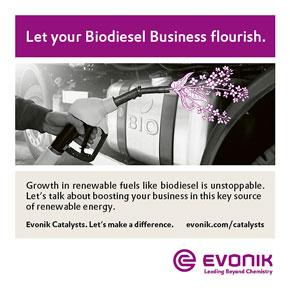Fuel made from plastic waste aids ‘On Wings of Waste’ flight in Australia
Jeremey Roswell, a UK-based pilot and environmentalist, has made history by flying a light aircraft more than 500 miles from Sydney to Melbourne, Australia, using fuel made from plastic waste.
Conventional fuel was blended with 10% of fuel made from end-of-life plastic waste. UK-headquartered firm Plastic Energy manufactures the fuel.
The main aim of the ‘On Wings of Waste’ (OWOW), Jet A1 flight was to raise awareness about end-of-life plastic waste in the world’s oceans and to highlight its potential benefits as a new source of fuel.
Dubbed the “10% solution” the ‘On Wings of Waste’ team’s campaign to inspire people to recycle plastic waste has taken four years to get off the ground.
The four stage proposition is: recycle – persuading the public to support for a recycling; re-use – transforming fuel from plastic waste to be blended with Jet A1; re-fuel – airlines adopting a 10% blend of fuel derived from plastic waste, and rescue – pollution of the world’s oceans is slowed down and eventually halted.
“After years of preparation and many ups and downs we’ve finally shown that the eight million tonnes of plastic dumped into the oceans each year can be put to good use,” said Roswell. “We blended 10% of fuel manufactured by Plastic Energy with conventional fuel and the flight was a dream.”
The project came about after Roswell witnessed first-hand from the air, pollution on land and sea, and recognised the significant danger posed by ever increasing plastic waste.
His concern about the environment and the consequences of an aviation industry reliant on toxic and damaging fuels gave him the drive and determination to test out a solution.
Ocean surface
“Plastic breaks up into small particles, mixing with the plankton at the ocean surface. Plankton is at the heart of the food chain and provides us with more than half the oxygen we breathe – our oceans keep us alive,” said Jo Ruxton, part of the OWOW team and one of the producers of ‘A Plastic Ocean’, a film highlighting plastic pollution.
“We can’t yet safely remove plastic particles from plankton that lives in the ocean, so we must stop dumping plastic waste in the ocean. There are estimated to be 5.25 trillion particles of plastic floating – mainly at the bottom – of the world’s seas.”
Roswell’s flight could have a profound effect on the aviation industry. A747 aircraft on a 10,000 mile flight burns 36,000 gallons of fuel and 33% per cent of airlines’ operating costs are spent on fuel.
According to Roswell, if 3,600 (UK) gallons of that fuel was sourced from plastic waste it would be the equivalent of 18 tonnes of waste plastic that might otherwise be dumped in the ocean. Factor in the 1200 flights a day that are made from Heathrow, and approximately 21,600 tonnes of waste plastic would be transformed from pollutant to fuel – every day.
Plastic Energy use a process called TAC (Thermal Anaerobic Conversion). Plastics are heated in an oxygen-free environment to prevent them from burning, and then broken into their component hydrocarbons to create the equivalent of a petroleum distillate. This can then be separated into different fuels. As there is no burning of the plastics, but rather a melting process, there are NO toxic emissions released into the environment.
Roswell and the ‘On Wings of Waste’ team are looking for support from the general public and other investors to build a recycling plant in Australia which, they hope, will help lead to a change in culture and attitude about how we dispose of single-use plastic.
This story was written by Liz Gyekye, editor of Biofuels International.












